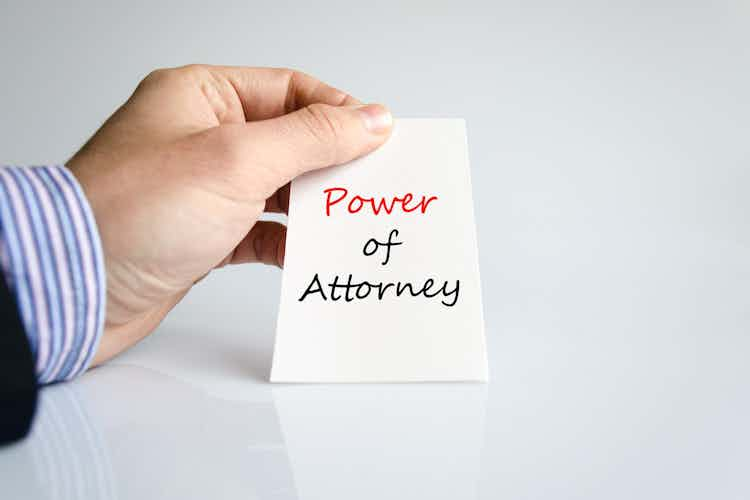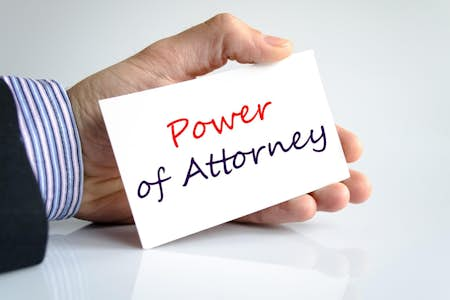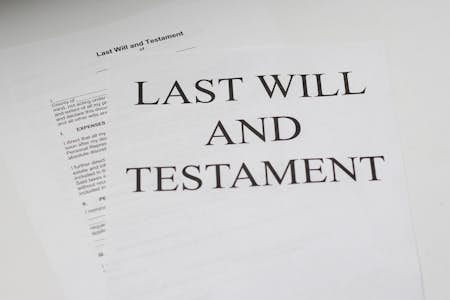A property and financial affairs lasting power of attorney (LPA) is a legal document allowing someone appointed by you to manage your financial affairs on your behalf. This includes making decisions on all financial and property matters, from paying the electricity bill to selling your home. A property and financial affairs LPA has to be formally registered with the Office of the Public Guardian to be valid and can only be used if your health declines and you lose mental capacity as defined by the Mental Capacity Act 2005. However, the LPA must be executed and registered whilst you still have full control of your faculties.
Who is the donor?
The donor is the person who is executing the Power of Attorney. A donor can appoint one or more attorneys to act on their behalf and also decide whether decisions are made collectively or by individual attorneys.
What is the role of an attorney?
The appointed attorneys act as the donor in all financial matters and decisions relating to any property. Attorneys have a legal duty to act in the donor's best interests regardless of their feelings or opinion and to adhere to a code of practice. Some LPAs contain restrictions, so the attorneys may not be able to sell a property, but they could administer all other elements of the donor's financial affairs, such as making purchases, paying bills, buying gifts on the donor's behalf for birthdays and Christmas and making investment decisions.
Attorneys cannot act on behalf of the donor to change the donor's will, execute a codicil to the existing will or make a new will, even if it concerns financial matters like legacies or taxation.
An attorney can also act under a property and financial affairs LPA if the donor has not lost mental capacity but authorises them to do so. This might happen if circumstances prevent the donor from managing their financial affairs due to reasons like work, extended travel abroad, or even unexpected hospitalisation due to an accident or physical illness. The donor may still be able to make their own decisions, but the actual administration of their financial affairs proves logistically tricky or impossible.
Appointing attorneys
Many people appoint just one attorney, commonly their spouse, life partner or child. To have one person making the decisions can be easier as there are no disagreements or conflicts.
It is good practice to have a backup and name a replacement attorney if the first nominated attorney cannot act for any reason. LPAs are often executed and lie dormant for many years; it's easy to get caught out and find that an attorney appointed years earlier has died or cannot act due to illness or infirmity. If a sole appointed attorney has died or cannot act, then the LPA will become invalid.
Appointing more than one attorney can be a good option as it shares the load and the burden of leaving all the decision-making to one person, which can be daunting if the donor has a lot of money or complicated financial affairs. With more than one attorney, the donor must decide whether they will act 'jointly and severally' or 'jointly'.
What do these terms mean?
Jointly and severally means the attorneys can either act together or independently of one another. This means that if an attorney has expertise and knowledge in a particular financial area like pensions, then that attorney can make decisions and sign off transactions. As such, an attorney can make routine and minor decisions quickly and easily without consulting other attorneys, which can often lead to delays. If one of the attorneys dies or becomes incapable, the LPA will remain valid with the remaining attorneys.
Joint appointments mean that all attorneys must act together in every transaction or decision, no matter how small. This does have advantages as it provides security for the donor and their family that no one person has control of the purse strings. However, it can also be slower and more cumbersome to administer routine affairs, and if one of the attorneys is not available, then that transaction or action must wait until they are. In addition, if one of the attorneys dies or becomes incapable of acting, the LPA becomes invalid even if the other attorneys are willing and able to act.
If the donor appoints attorneys jointly for some decisions and jointly and severally for others, some decisions are made together by all the attorneys and others are made separately. The LPA form that the donor executes must specify which decisions are which. Usually, high-value or serious decisions like the sale of property are listed as joint decisions only. In contrast, more minor and mundane financial administrative decisions can often be taken separately.
The donor can also specify how attorneys must act. For example, the LPA might state that attorneys must use an independent financial adviser or take legal advice for all investment decisions over a specific value or all decisions on a designated bank or building society account. The attorneys are bound by these instructions.
People to notify
When the LPA is registered with the Office of the Public Guardian, the donor can choose up to five people to be notified at this point. This is an additional safeguard alongside the certificate provider so that the people named know about the LPA and have the right to comment or raise objections about it.
The certificate provider
As well as the donor and attorney's signatures, a certificate provider must also sign each LPA. This extra layer of safety and security demonstrates that the donor is not under undue pressure or is being coerced into signing the LPA. The certificate provider must either be personally known to the donor for at least two years prior or they can be a recognised professional such as a solicitor or doctor, in which case, they do not need to have known the donor for the previous two years.
The certificate provider cannot be any of the following:
- A family member of the attorney
- A member of the donor’s family
- An attorney appointed under that LPA
- An employee or business associate of the donor
- An employee of a nursing or care home where the donor is living
Registering a property and financial affairs LPA
An LPA is only valid when registered with the Office of the Public Guardian. This used to take a long time, but the government has recently overhauled the service to make the lives of donors and their attorneys easier. There is a registration fee of £82.
If you had mental capacity when you executed the LPA but lost capacity before it was registered, your attorneys could register the LPA for you providing it has been signed in the correct order and properly executed.
The whole lasting power of attorney process has been modernised and digitalised with a new ‘Track my LPA’ service so donors and attorneys can easily monitor the progress of their applications. You can also create an online account so donors, attorneys and other organisations like financial institutions can access a digital summary of an LPA. This can make it easier for attorneys if they need to administer a bank or building society account.
Once the LPA is registered, attorneys and donors receive an activation key. Donors can add other LPAs to their accounts and create an access code to provide to organisations who need to view or check the LPA. This makes it easier to authenticate LPAs, which has sometimes been a problem for attorneys when dealing with financial institutions. It also avoids the delay of individuals having to send documents by post for verification purposes. The online service is speedy and completely secure.
Donors and attorneys with new LPAs can use the online service, as can those with LPAs registered from 17 July 2020. The service is unavailable to LPAs registered before this date, but there are plans to roll it out to LPAs registered earlier in 2020 and to some from 2019.
How does a property and financial affairs LPA differ from a health and welfare LPA?
A health and welfare LPA is the other type of lasting power of attorney and only concerns decisions relating to the donor's welfare, daily routine and medical treatment. It shares the same requirements as a property and financial affairs LPA in that it must be formally registered to be effective, and the donor must have lost their mental capacity for the attorneys to act.
Most people execute powers of attorney when they write a will. You can choose the same people to act as attorneys for both LPAs or different ones.
An attorney appointed under a property and financial affairs LPA cannot make any decisions which relate to the donor’s personal or medical care. So an attorney may authorise payments for the donor’s healthcare or a care home, but they cannot be involved in care decisions and deciding whether that care is appropriate even though they are releasing funds to pay for it. For this reason, it can be helpful to appoint the same attorneys under both LPAs to make the decision-making more seamless.
Lasting power of attorney versus enduring power of attorney
Until 2007, if you made a power of attorney, it was called an 'enduring power of attorney,' or EPA. An EPA was registered when the donor lost mental capacity. At that point, the attorney would register the EPA with the Court of Protection; then, the EPA became live, and the appointment could be used. But an EPA can also be activated at any point after it has been signed, so before registration.
One of the key differences between an EPA and an LPA is that an LPA allows you to appoint replacement attorneys if you need to. There are lots of situations where it may be necessary to replace an attorney, including:
- If the original attorney dies
- If the attorney no longer has the mental capacity to act
- If they no longer want to continue in the role
- If they are the donor’s spouse or civil partner and the marriage or relationship breaks down





